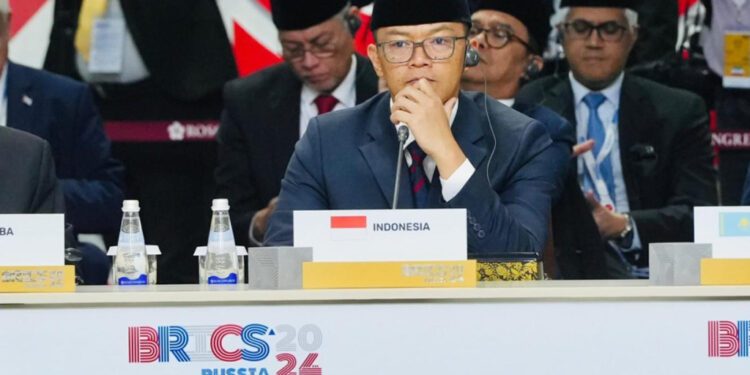Indonesia’s recent admission into BRICS has sparked both optimism and apprehension. As Southeast Asia’s largest economy, its inclusion strengthens the bloc’s economic clout. However, analysts worry this move could strain Jakarta’s ties with the United States under Donald Trump’s administration.
BRICS Expansion and Indonesia’s Role
BRICS initially comprised Brazil, Russia, India, China, and South Africa. With Indonesia now a member, the bloc represents a significant portion of global economic power. Brazil, as the current chair, announced Indonesia’s inclusion, marking it as a notable milestone for the bloc. Indonesia’s membership reflects its ambition to play a greater role in global geopolitics and economic collaboration.
The Indonesian government views this as a strategic move. A Foreign Ministry spokesperson stated that BRICS membership aligns with the nation’s goals of promoting equality, mutual respect, and sustainable development. However, some experts remain unconvinced about the tangible benefits of joining.
Economic Concerns for Indonesia
Economists and analysts have raised concerns about the economic implications of BRICS membership. Indonesia already has robust trade ties with major BRICS members, such as China and India. Critics argue that joining BRICS adds no significant economic advantage but could potentially create new challenges.
Muhammad Andri Perdana, a think-tank director in Jakarta, warned that heightened BRICS involvement could deepen Indonesia’s economic dependence on China. This risk increases if Trump implements tariffs targeting BRICS nations. Vinsensio Dugis from Airlangga University noted that Western nations might reduce investments in Indonesia due to their perception of BRICS as an anti-Western bloc.
Opportunities in Non-Traditional Markets
Despite the skepticism, some experts highlight potential benefits for Indonesia. By joining BRICS, the country gains access to non-traditional markets and opportunities to diversify its economic partnerships. Bagus Ismujati, an expert from Griffith University, emphasized that BRICS could help Indonesia expand its trade reach and strengthen its global presence.
Indonesia’s foreign policy prioritizes collaboration over confrontation. Lawmakers from President Prabowo Subianto’s party stress that BRICS membership complements Indonesia’s involvement in other international forums like APEC, G20, and OIC. Their approach seeks to balance economic benefits with geopolitical strategy.
Global Reactions and Media Attention
Indonesia’s entry into BRICS has drawn mixed reactions globally. In the West, the news received limited attention, prompting criticism from observers. Economist Philip Pilkington highlighted that Indonesia’s large economy and strategic importance deserved more coverage. Peter Frankopan, an Oxford historian, noted that BRICS now accounts for nearly 40% of global GDP by purchasing power parity.
This development underscores a shift in global power dynamics. As Western influence wanes in some areas, the Global South, represented by BRICS, gains prominence. However, internal challenges and differing views within BRICS continue to limit its full potential.
Looking Ahead
Indonesia faces a critical task of ensuring its BRICS membership delivers economic gains. Experts urge the government to develop a clear agenda to maximize opportunities within the bloc. The focus should remain on strengthening trade, boosting investment, and avoiding over-reliance on any single partner.
While the decision to join BRICS may carry risks, it also signals Indonesia’s intent to assert its influence on the global stage. The coming years will reveal whether this move transforms into a strategic advantage or a diplomatic misstep.
Related Stories:
Indonesia Joins BRICS as Full Member
BRICS Promoting the Idea of De dollarization.
ASEAN Faces Diminishing Relevance as BRICS Gains Momentum in 2025
















